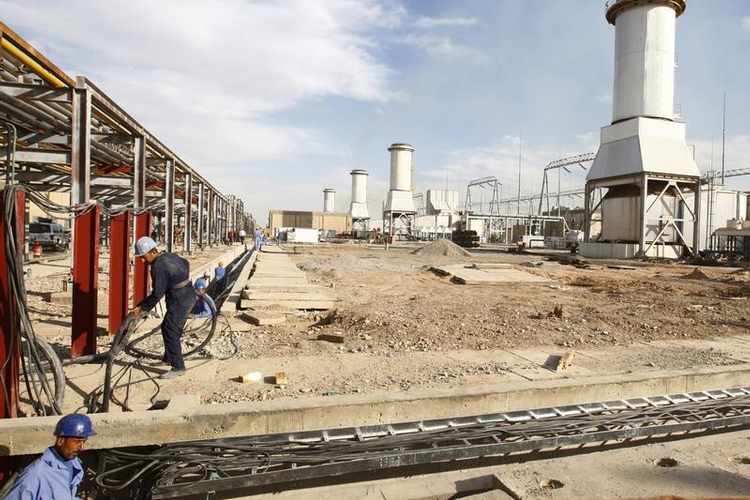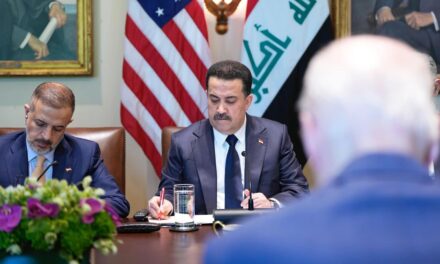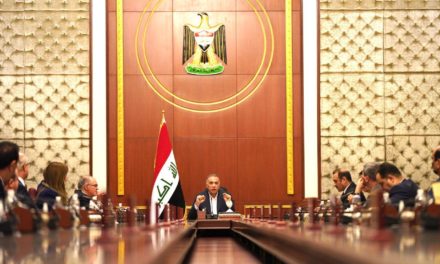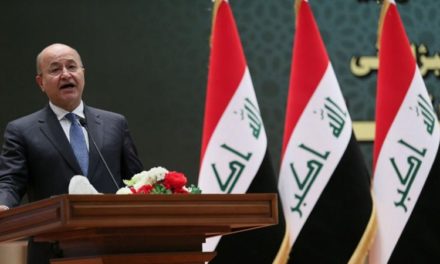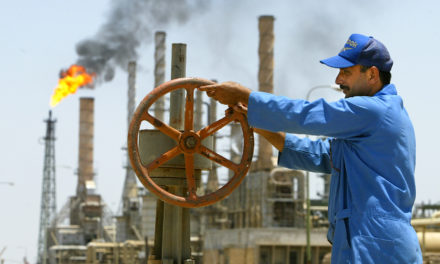(Al-Quds power plant in Baghdad. Photo: Reuters/Thaier al-Sudani)
Last week, Iraqi officials revealed that Baghdad was mulling plans to build eight nuclear power plants worth $40 billion. The goal is to add 11 gigawatts in power generation capacity and meet an ever-growing demand for electricity, projected to exceed 40 gigawatts by 2030.
Nuclear power has its undeniable merits. Nuclear energy is cleaner than fossil fuels in terms of carbon emissions. Nuclear power plants produce large amounts of energy. They also produce reliable electricity, unlike solar and wind farms that are dependent on weather conditions. Nuclear power plants also do not face the kind of fluctuations that gas-fired plants do in Iraq, where much of the natural gas comes as a byproduct of oil production.
But there are considerable problems that make this plan a misguided search for answers in the wrong direction.
First of all is the high cost of building the reactors and power plants. With oil revenue covering a shrinking percentage of spending, and revenue diversification plans making little progress, Iraq cannot afford the $40 billion needed to finance the construction on its own. The country is also far from offering a favorable business environment that would entice foreign investors to provide funding.
Perhaps more importantly, Iraq’s electricity crisis is not merely about generation. In fact, more than half of the electricity generated in Iraq is lost during transmission and distribution. Simply sending more electricity down the power lines does not guarantee that the energy will reach the intended consumers.
Third, there are geopolitical considerations that cannot be ignored. Iraq’s neighbors, especially Israel and the Gulf states, will likely try to block the construction of reactors in Iraq if the plan approaches implementation stages. Although Iraq is no longer the threat it was to these states under Saddam Hussein– who invaded Kuwait and threatened to incinerate Israel–the country’s political class is under heavy Iranian influence. This may raise suspicions about the purpose of Iraq’s nuclear energy plans and whether they would become extensions of Iran’s ambitions to obtain nuclear arms. The impunity with which Iran-backed militias attack diplomatic missions and Iraqi Army bases adds more dimensions to these security concerns and suggests that Iraq will remain an unsafe environment for this type of facilities for some years to come.
Fourth, Iraq as it is today lacks the technological capabilities and security safeguards to safely operate nuclear facilities. The decrepit state of Iraq’s decaying infrastructure, the corruption and poor quality associated with new public works, and the incompetence that characterizes Iraqi public institutions simply do not inspire confidence in Baghdad’s ability, at least in the near future, to handle sophisticated, high-stakes projects like nuclear plants.
Iraq would be better off focusing on repairing and upgrading its grid and putting in place the mechanisms needed for efficient tariff collection. Those are crucial steps to reduce waste, rationalize consumption, and generate revenue to make the electricity sector more sustainable. Indeed, The International Energy Agency’s (IEA) recommendations for Iraq did not prescribe nuclear power as the preferred remedy for the country’s electricity woes. Instead, IEA pointed out that “the most affordable, reliable and sustainable path requires cutting network losses by half at least, strengthening regional interconnections, putting captured gas to use in efficient power plants, and increasing the share of renewables in the mix”. The first two items on this list require primarily low-tech grid repairs, law enforcement, and diplomatic efforts. The other two need a fraction of the nuclear plan’s $40 billion price tag and present none of its security and geopolitical hurdles.
Nuclear power works well for a lot of countries, but Iraq is not one of them, at least not yet. The last thing Iraq’s electricity sector needs is to waste precious resources and time on pointless studies and consultants, and worse of all, on the kickbacks and corruption that have become the hallmark of mega government deals.

Omar Al-Nidawi
Omar Al-Nidawi is a Middle East analyst focusing on Iraqi political, security, and energy affairs. He is a Program Manager at EPIC and a guest lecturer of Iraqi history and politics at the Foreign Service Institute. The opinions expressed in this piece are his own.

